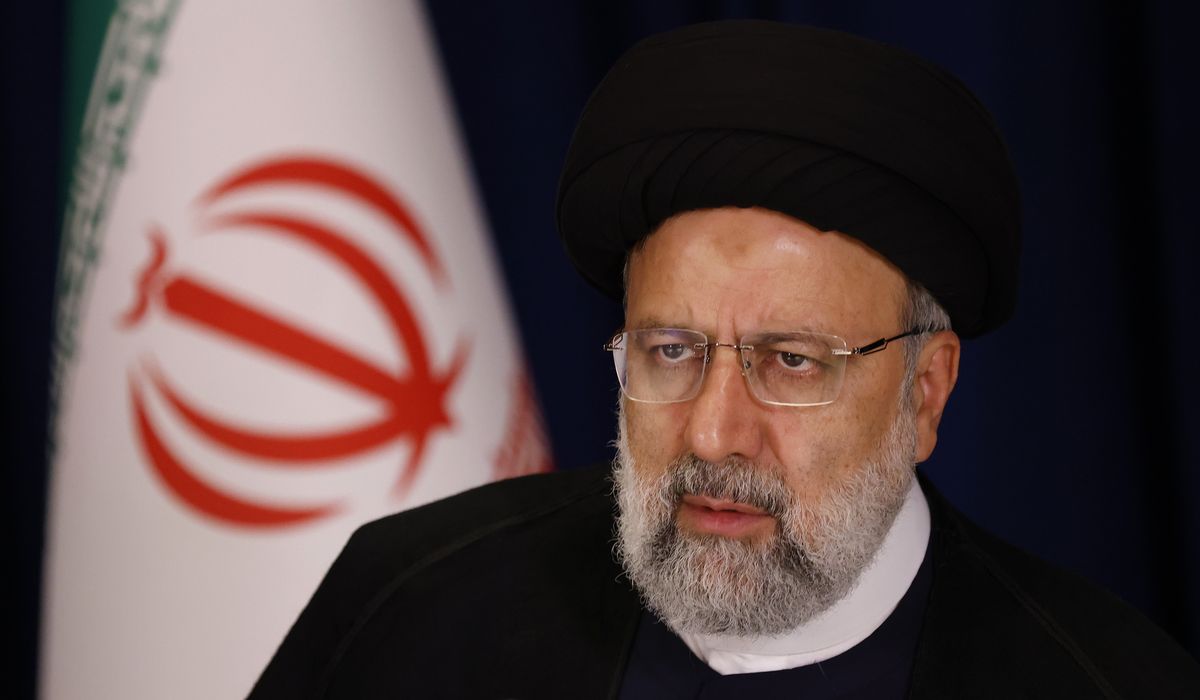


The effort to foster diplomatic ties between Israel and the Arab world will ultimately fail, Iranian President Ebrahim Raisi said in an interview that aired Sunday, calling the normalization push little more than a charade perpetrated by Washington.
In an interview with CNN’s Fareed Zakaria, Mr. Raisi shot down the narrative that fears over Iran’s malign influence in the Middle East and its perceived pursuit of nuclear weapons are drawing Israel and some of its traditional Arab foes together.
His comments come amid a push by the Biden administration to bring Israel and Saudi Arabia together and end their diplomatic freeze.
“This normalization will see no success,” Mr. Raisi said of the push to thaw relations between Israel and the Arab world.
The prospect of normalization between Israel and Saudi Arabia would be seen as a significant blow to Iran’s influence.
As the region’s top Shiite Muslim nation, Iran has engaged in a competition and geopolitical rivalry with Saudi Arabia, the Middle East’s leading Sunni Muslim power, that has largely defined the region in the 21st century.
The two sides also have been on opposing sides of proxy conflicts, most notably in Yemen, where Saudi Arabia has backed Yemen’s government troops while Tehran has supported the Houthi rebel force.
While downplaying the prospects for Israel and Saudi Arabia normalization, Mr. Raisi also specifically blasted the Abraham Accords brokered by former President Donald Trump.
The Biden administration has cautiously embraced those accords — named after the prophet recognized by Judaism, Christianity and Islam — that saw the United Arab Emirates, Bahrain, Morocco and Sudan sign normalization agreements with Israel.
The 2020 agreement marked the first official acknowledgment of Israel’s sovereignty by Arab nations since Egypt and Jordan broke from the rest of the Middle East to establish diplomatic ties with Israel in 1979 and 1994, respectively.
From Iran’s perspective, the accords were little more than an American diplomatic game and did little to change the broader dynamic in the Middle East.
“This was a job done by the Americans to take the hands of the Israelis and put them squarely in the hands of certain Arab countries. This doesn’t equal acceptance of those nations, of those people,” the Iranian president said. “This was only obtained under American pressure. The frame of thought of the Americans was they are somehow creating security for the Zionist regime, whereas normalization of [diplomatic relations with] certain countries with Israel does not buy security or bring about security for the Zionist regime.”
Both the U.S. and Israel view it much differently.
Israeli Prime Minister Benjamin Netanyahu, who worked closely with Mr. Trump on the Abraham Accords, has said the inclusion of Saudi Arabia in the future would mark a “quantum leap” forward for Israel and the region.
“I think such a peace would go a long way for us to advance the end of the Arab-Israeli conflict, achieve reconciliation between the Islamic world and the Jewish state and advance a genuine peace between Israel and the Palestinians,” the Israeli leader said at the start of his meeting last week with President Biden, as both men were in New York to attend the U.N. gathering.
“This is something within our reach,” Mr. Netanyahu said.
• Guy Taylor contributed to this report.
• Ben Wolfgang can be reached at bwolfgang@washingtontimes.com.
